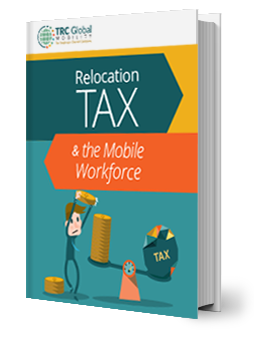

With that said, these Relocation Tax Best Practices will help to minimize tax headaches for employers and transferring employees.
- Ensure that the relocation meets the IRS qualifications for deductible moving expenses
- The new workplace must be at least 50 miles farther from the old home than the old job location was from the old home. (For college grads and others with no previous workplace, the new job location must be at least 50 miles from the old home.)
- The employee must be employed full time for 39 weeks during the 12-month period following the first day of work in the new location.
- The move must correlate with beginning work at a new job location.
- Relocation policies should clearly describe which benefits are tax protected and which benefits will result in a tax liability for the transferee
- Employers should discuss any tax liabilities with the transferee during the relocation orientation.
- If a transferee is offered a relocation package without gross-up on some or all of the non-excludable benefits, he or she should be counseled on how to maximize the impact of the benefits while minimizing the tax liability.
- When the transferee has a choice of relocation benefits, he or she should elect those benefits that will minimize tax liability.
- By using a relocation management company to administer home sale programs (and relocation programs overall) and by paying household goods movers directly, employers will significantly reduce their tax liability and gross-up costs.
- Employers should also ensure that as year-end approaches, the transferee be clear on any and all expense cut-off dates to avoid the employer having to issue W2-C (W2 Correction) forms.
Want to know more about Employer and Transferee Taxation of Relocation Expenses?
Relocation Tax and the Mobile Workforce will cover:
- Relocation Tax Best Practices
- Tax Guidelines for Homesale Assistance benefit
- Relocation Policy components and Taxability





